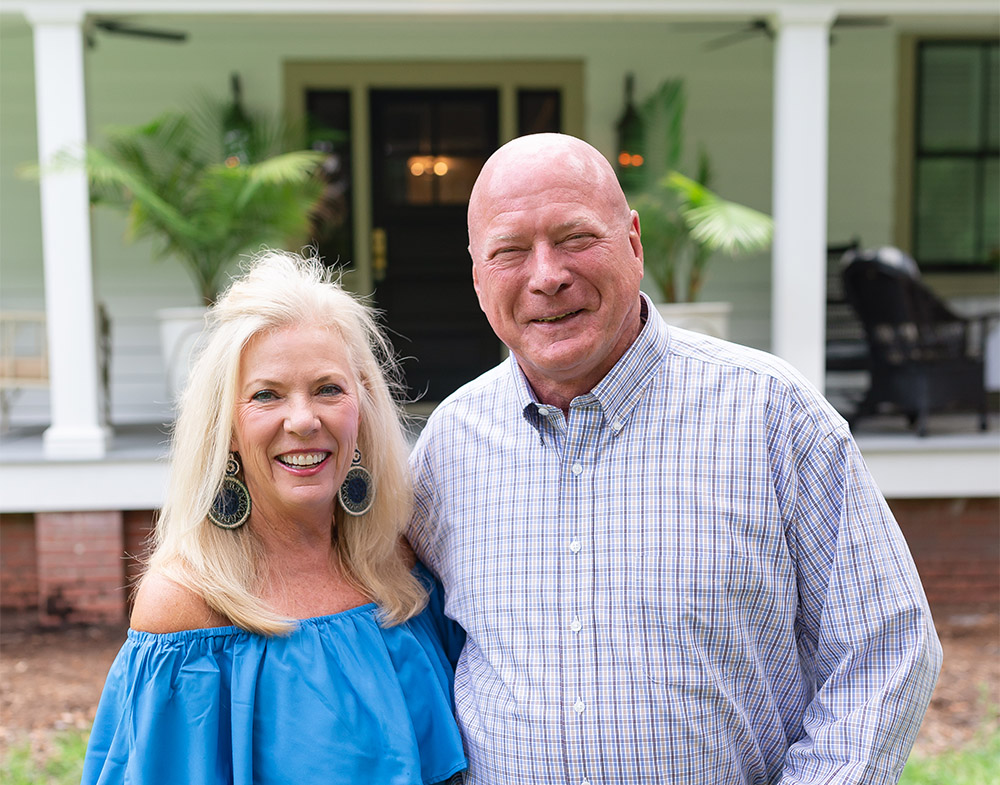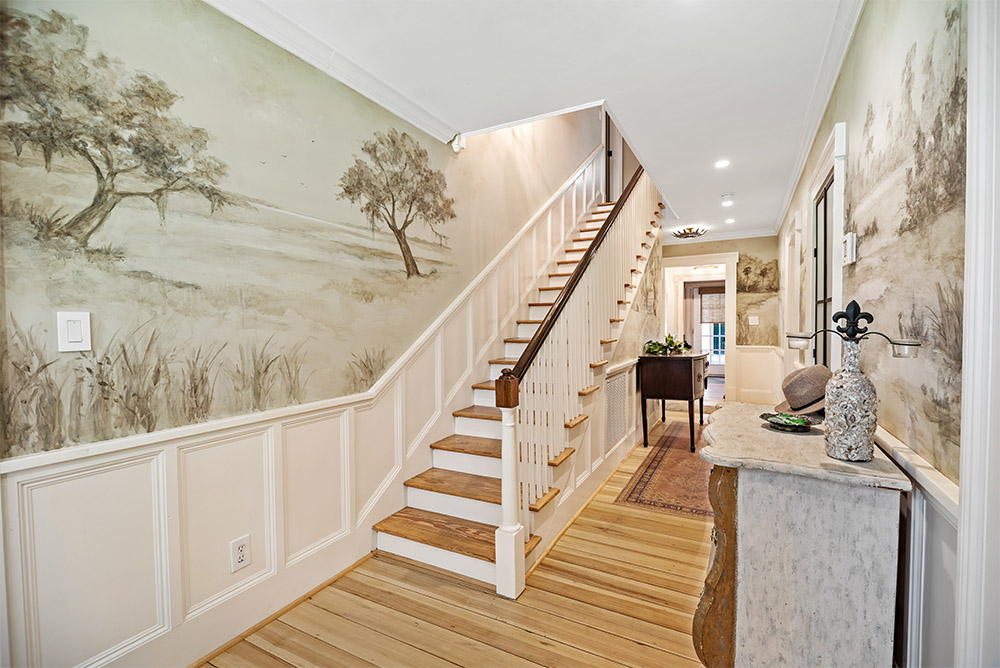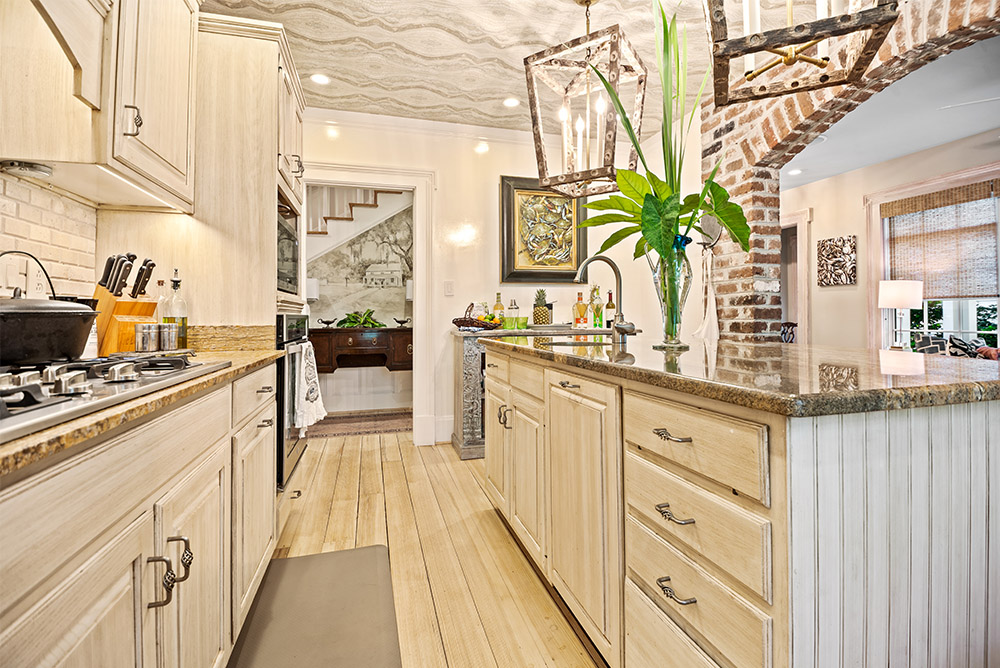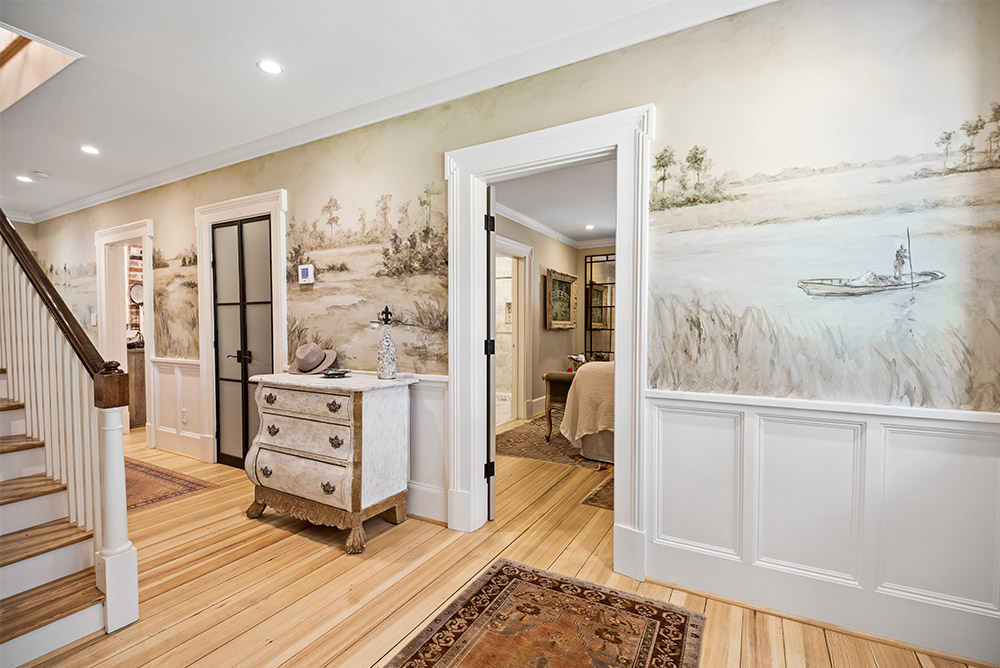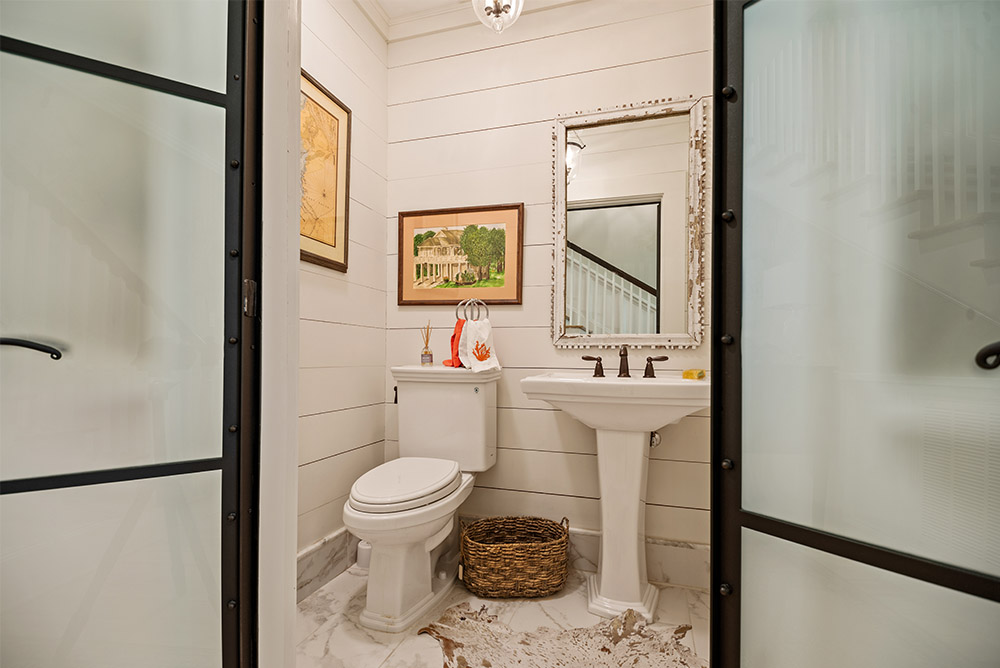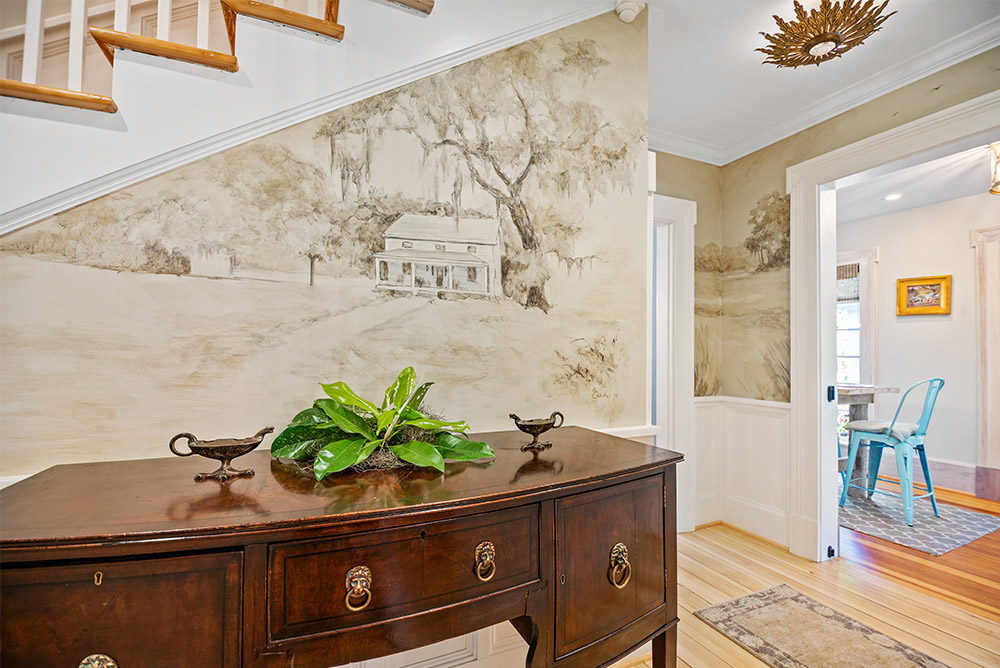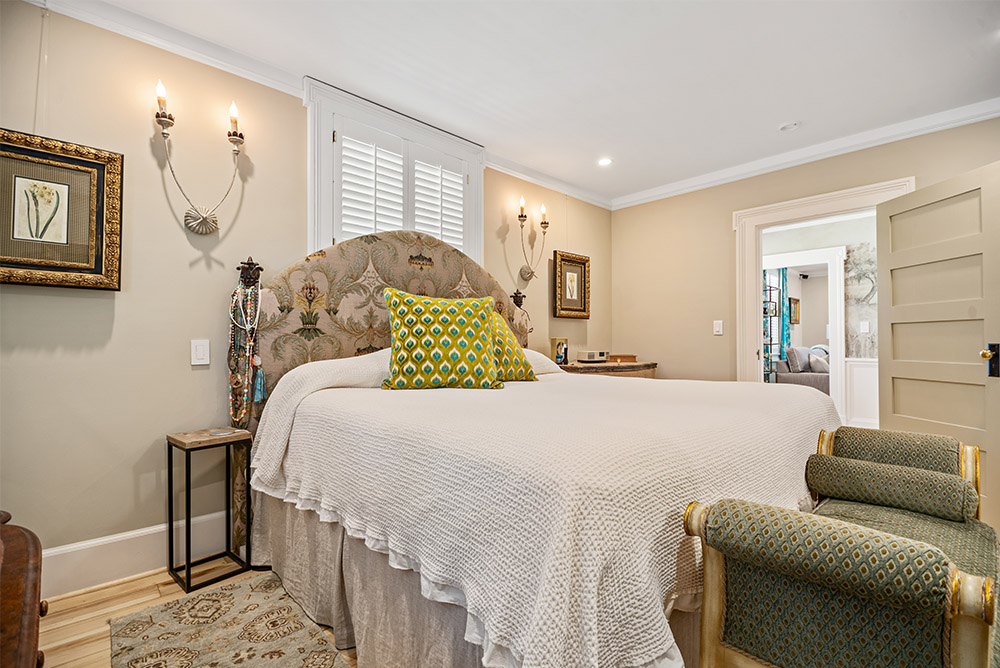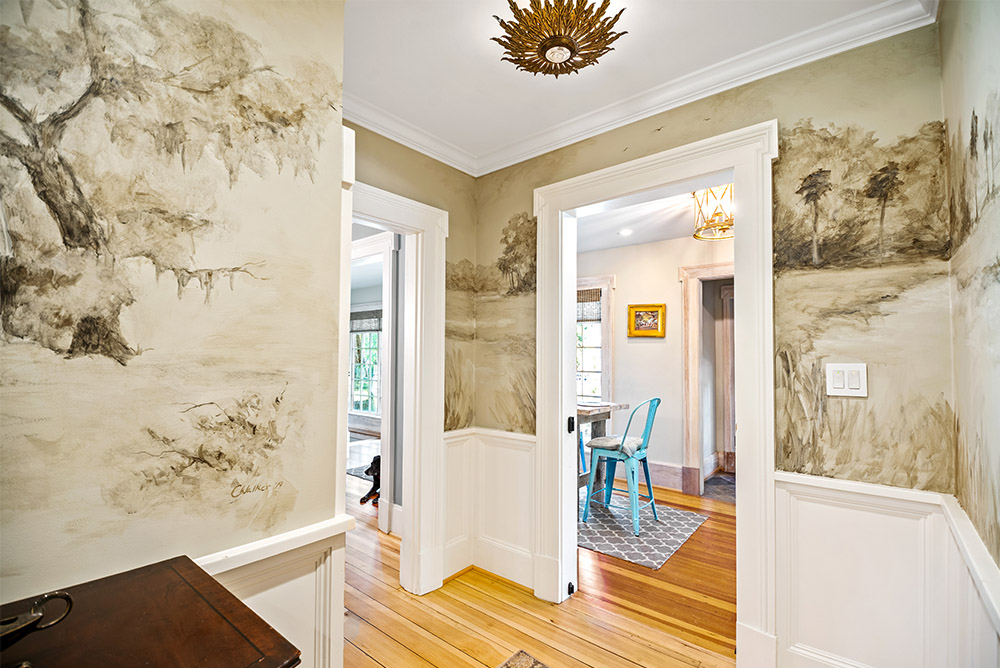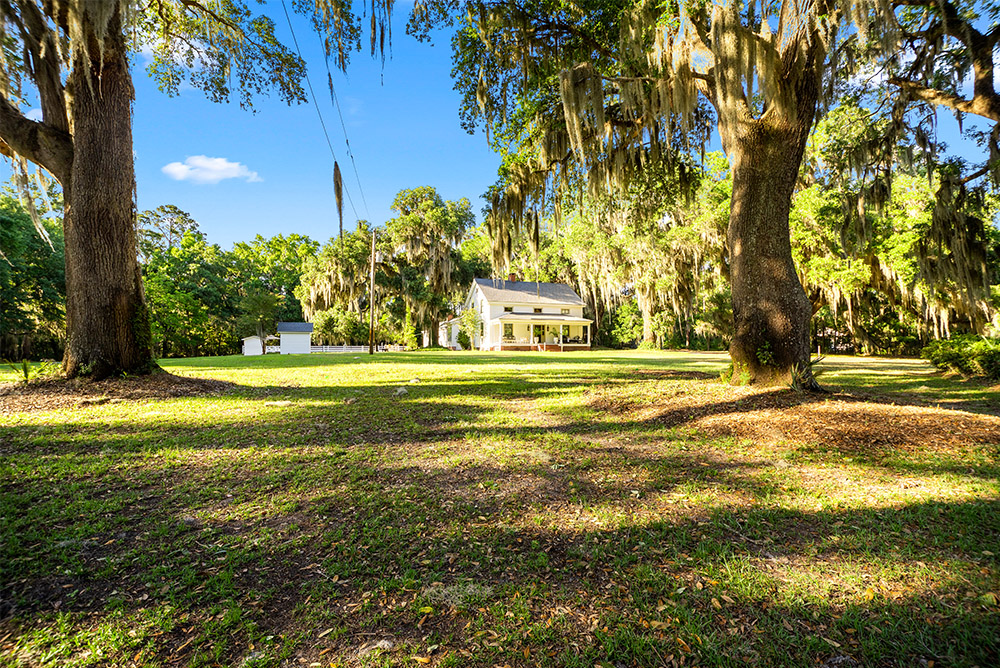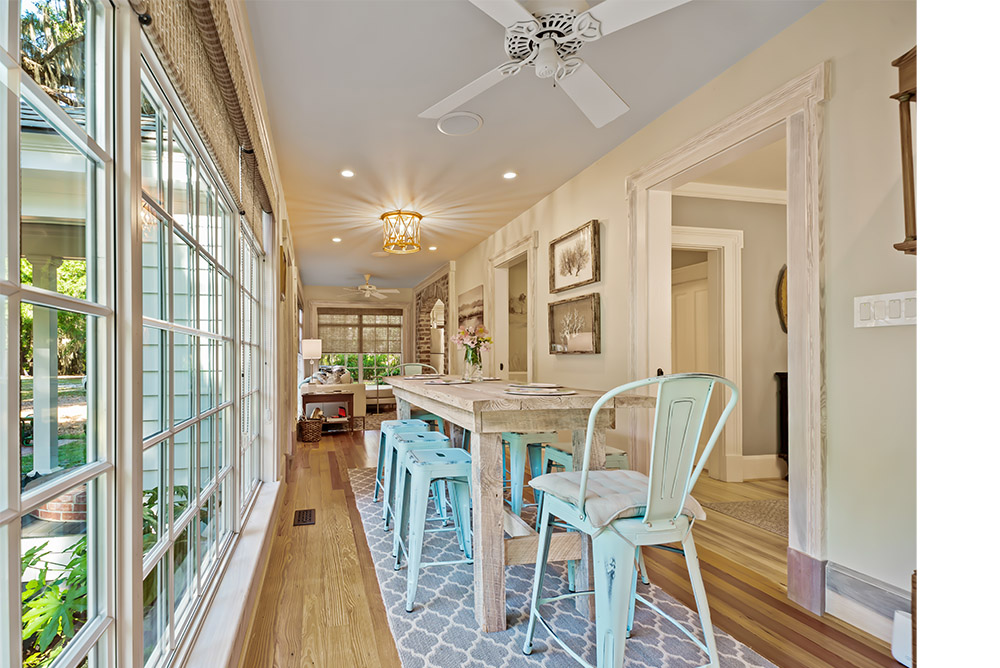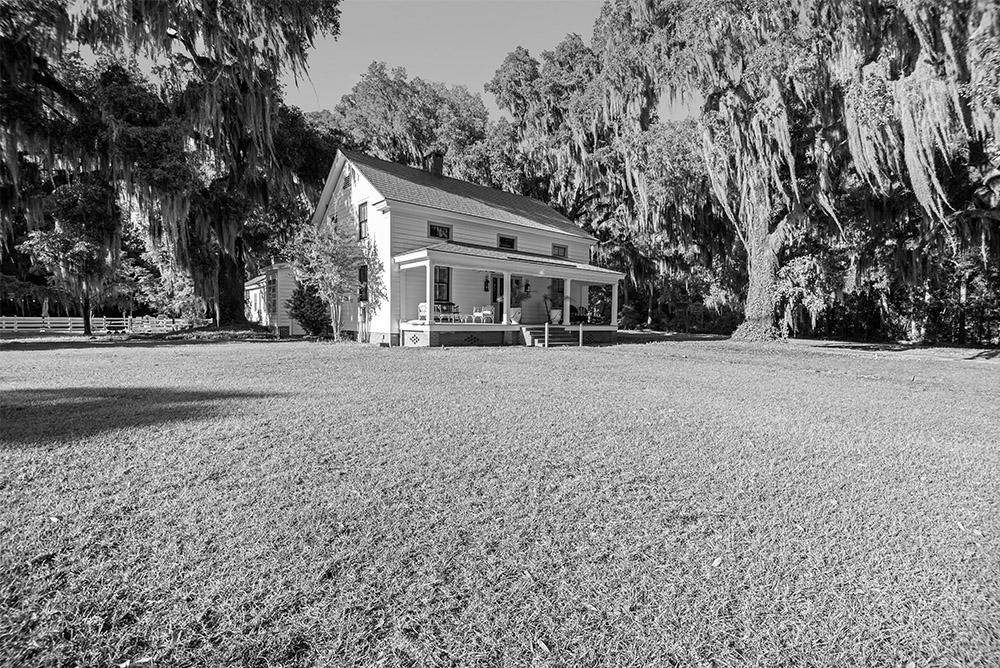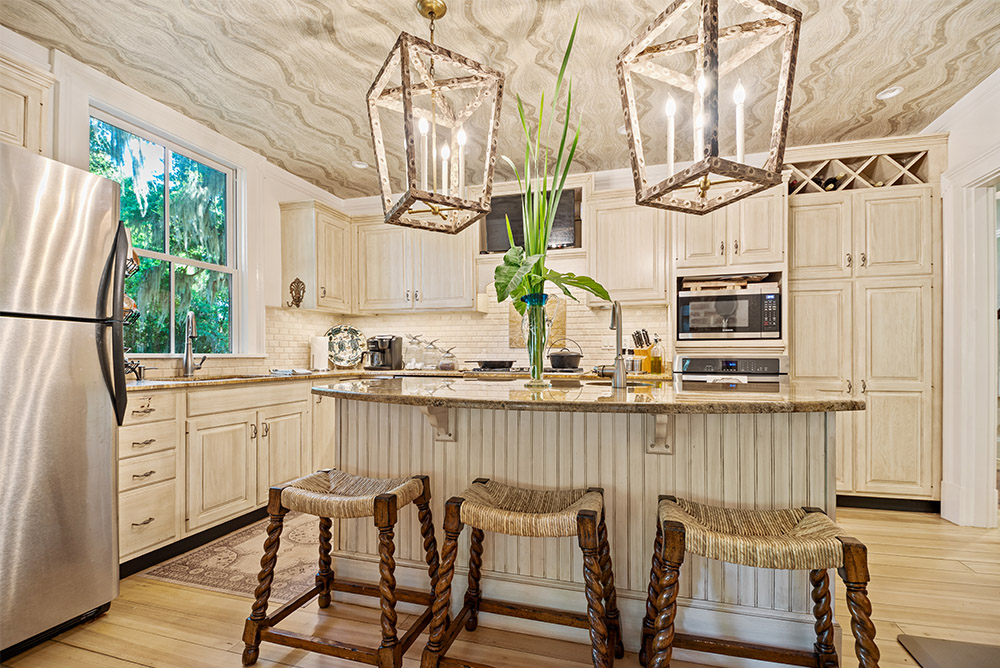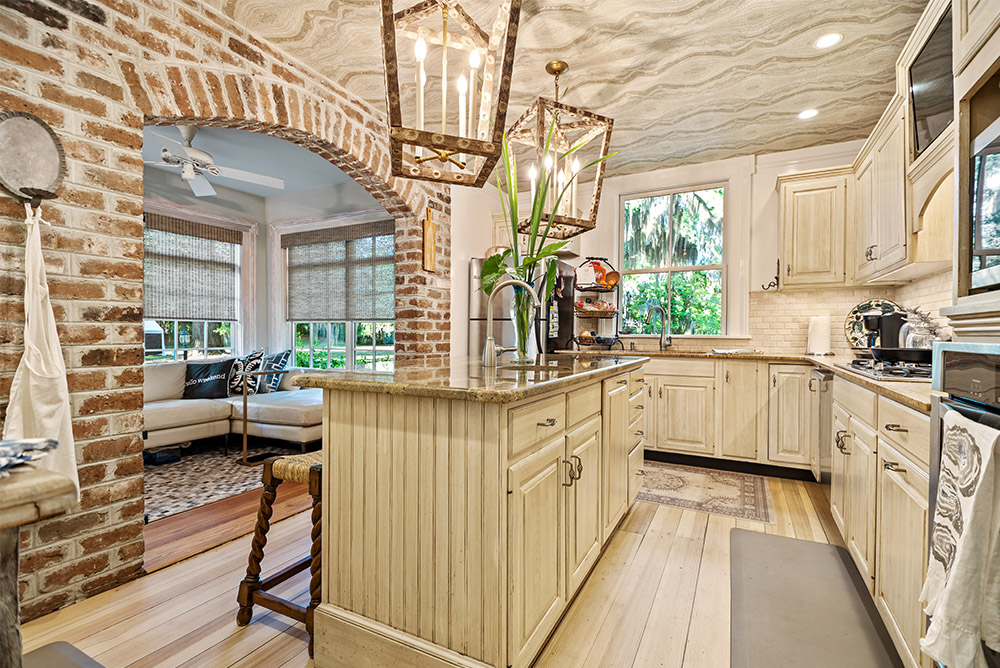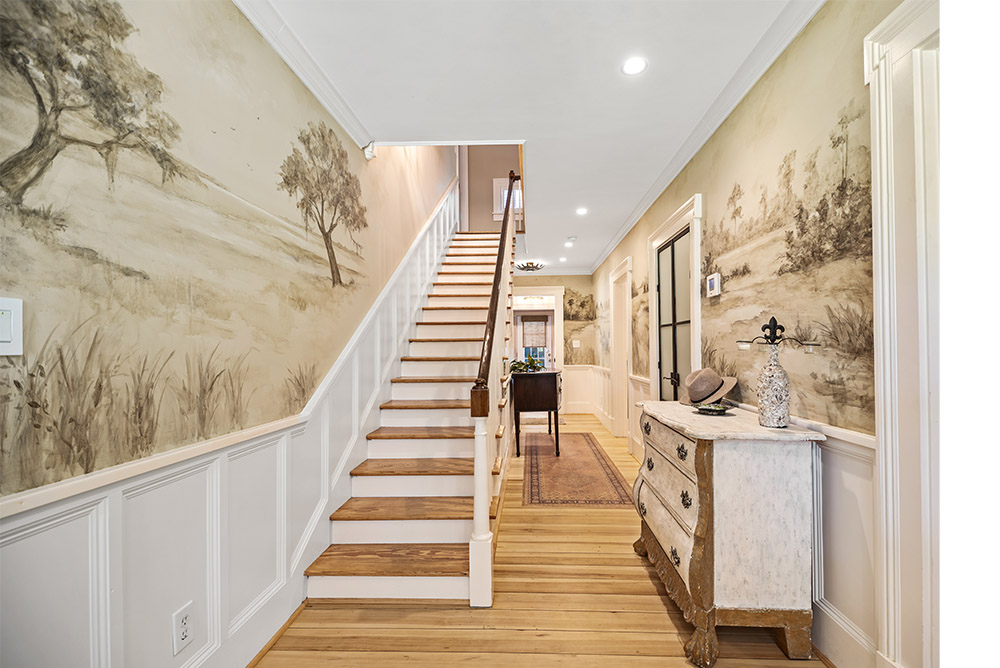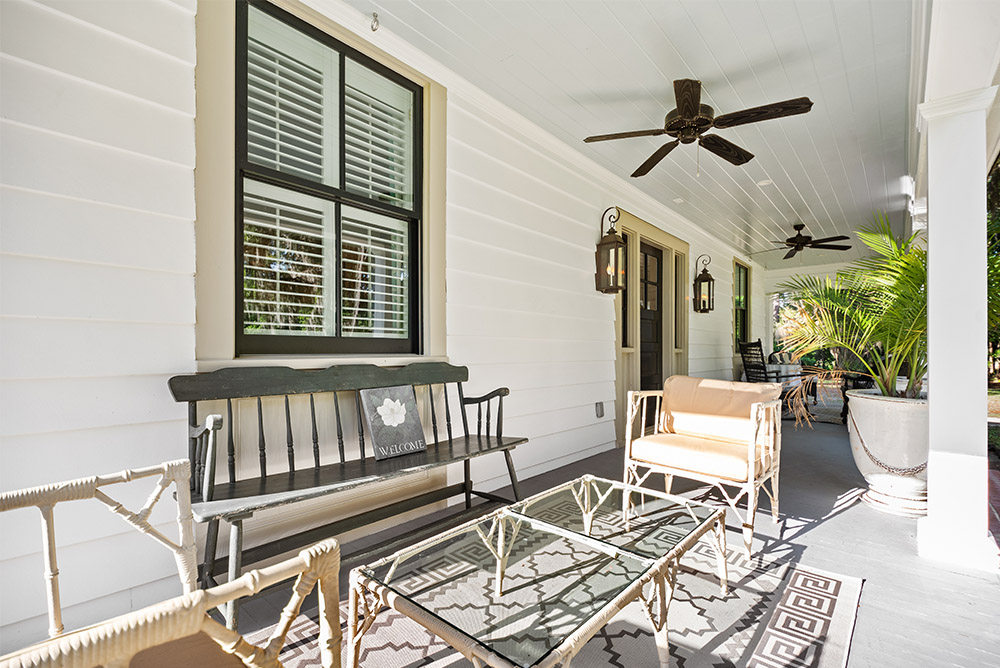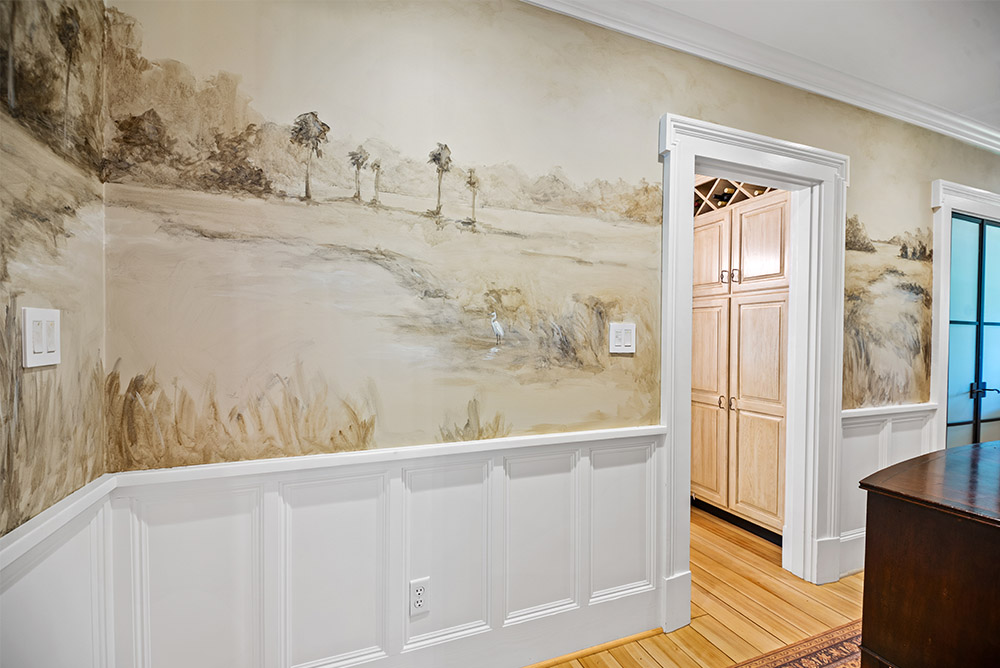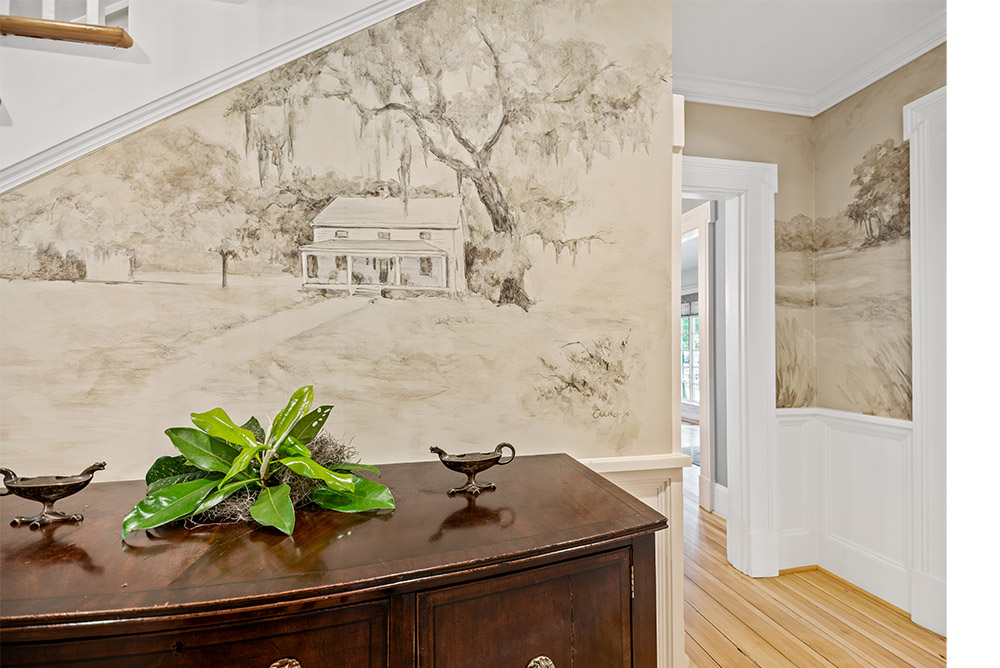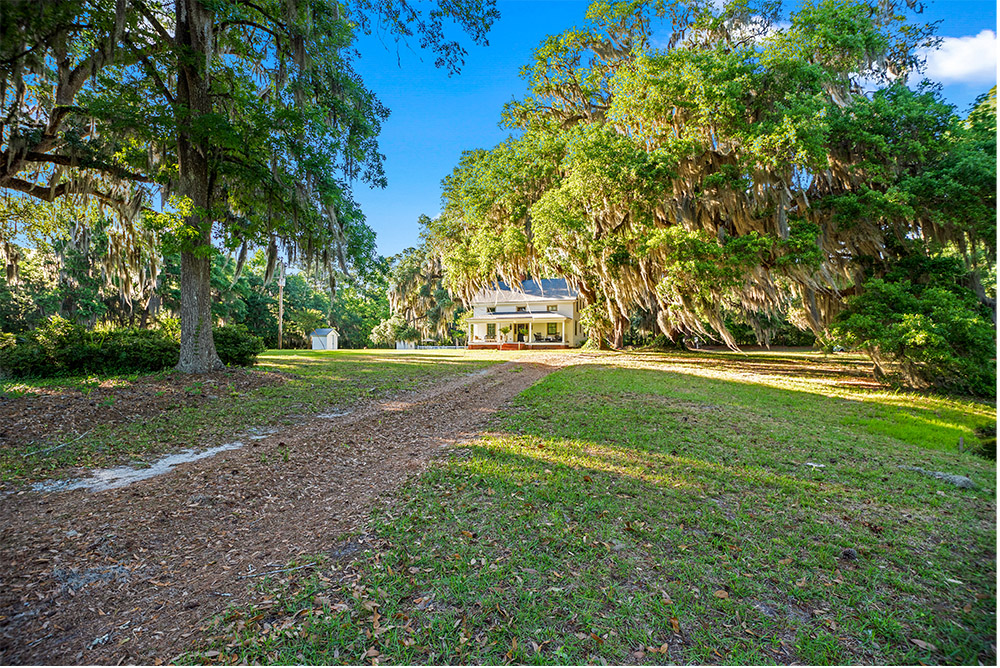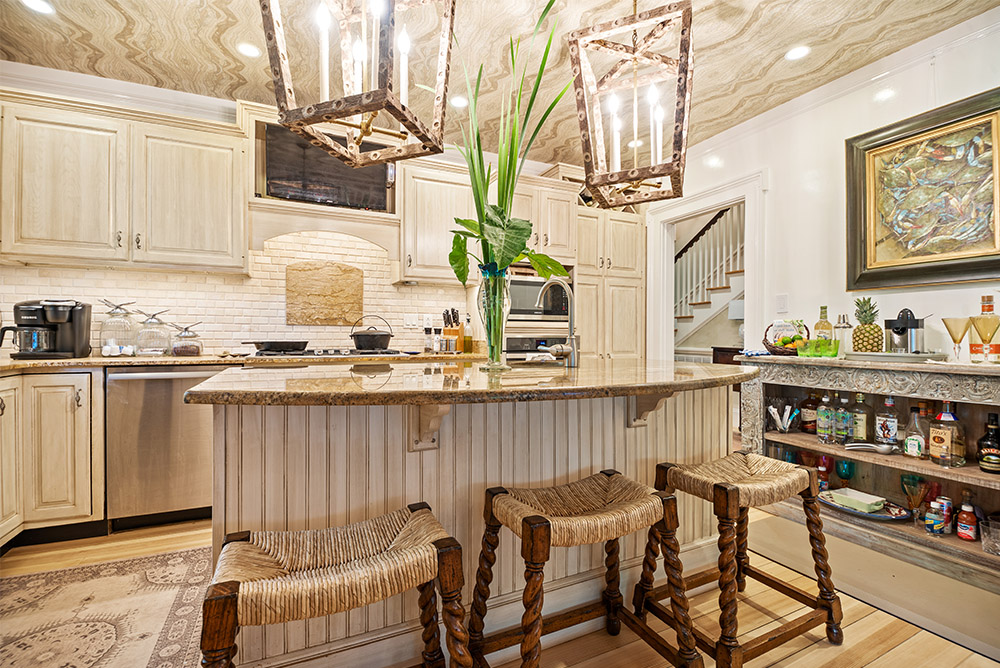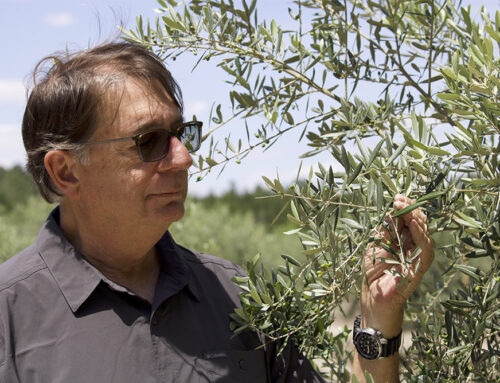“Southerners can claim kin with anybody. It’s one of our most dextrous talents.”
by Ben Merrill
Photos by Erin Hixson Photography and Contributed by E&E Images
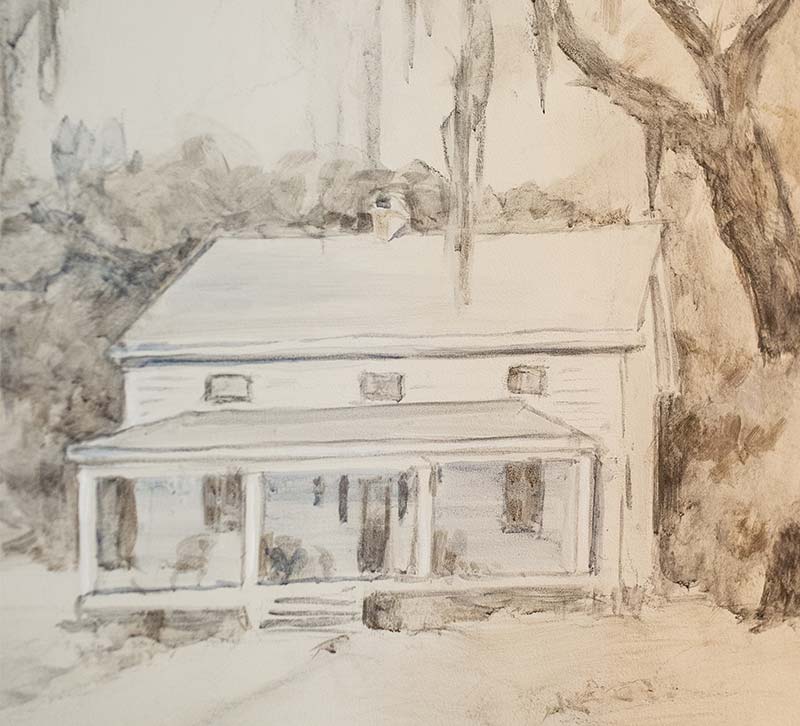
South Carolina native and American writer Guy Davenport wrote those words some dozens of years ago. Then, at dinner the other night, I saw first hand how very true to the South they are. I’ll circle back to this thought in just a bit, but for now, let me tell you a short story about a house dating to the Henry Ford era; about the family who lived in that house; and about a special moment in time last month that defined both the history and timelessness that is Richmond Hill.
At the intersection of Belfast Keller and Bryan Neck Roads – or close enough, anyway, to be called the intersection – there stands a grand old house reminiscent of quieter days when the roads were made of dirt and farms lined the highway between Keller and Richmond Hill. Over the past eight-plus years, Patrick Murphy and his fiancé, Jone Bremer, have been lovingly restoring this old house to its original condition.
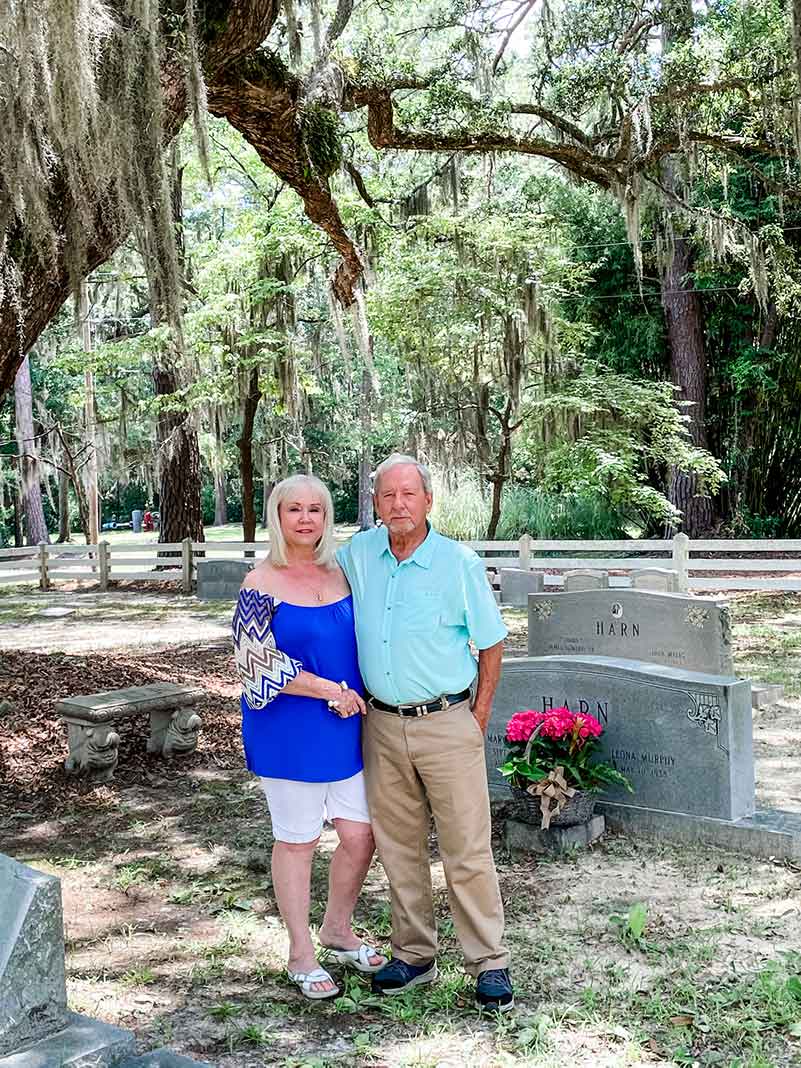
“I bought this place 28 years ago,” Murphy says, “and I never really had the time to do it justice. But there was something so special about it that I just couldn’t let it go. So I kept patching it and I kept hoping that one day I’d be able to bring it back to life. Then I met Jone, who just happens to be an interior designer, and she immediately saw what this old place could be. Together, we’ve renovated every single element of the house by hand – all the while living in plaster dust and paint. But it’s been a labor of love and we’re immensely pleased with the outcome.”
The house was built back in the early 1930s by Henry Ford for one of his workers, Marvin Leroy Harn. Marvin was a crane worker. It resembled another Harn family house, also acquired by Ford, that stands to this day at Kilkenny. But that, as they say, is a story for another time. As this story goes, the house at Belfast Keller came about because of a fire. It seems that Marvin’s daughter, Freida Marie, accidentally burned the Harn family home at Hardwicke to the ground after leaving ashes from the wood stove on the back porch to cool. In a show of kindness not uncharacteristic of Marvin’s wealthy employer, Ford built Marvin a new home on the Belfast Keller lot. Not lost on Mr. Ford – one can only surmise – was the fact that he himself was living in a mansion built on land originally granted to John Harn back in 1748 by King George II.
“When you stand in the Ford mansion and look to the west,” says Linda Harn, wife of James “Cookie” Harn, who was born in the Belfast Keller house back in 1939, “you can see that the oak trees form the letter ‘H.’ It was a Harn who planted those trees and they still grace the landscape there to this day.”
I had the privilege of dining with Linda Harn (and eight other strangers) in the newly restored dining room of the Belfast Keller house last month. We were gathered at the invitation of Patrick and Jone to admire the impeccable restoration of the floors, walls, ceilings and fixtures. Or so I thought. At the suggestion of Paige Glazer, publisher of this magazine, the other dinner guests were none other than members of the original Harn family, all of whom had ties to the old house.
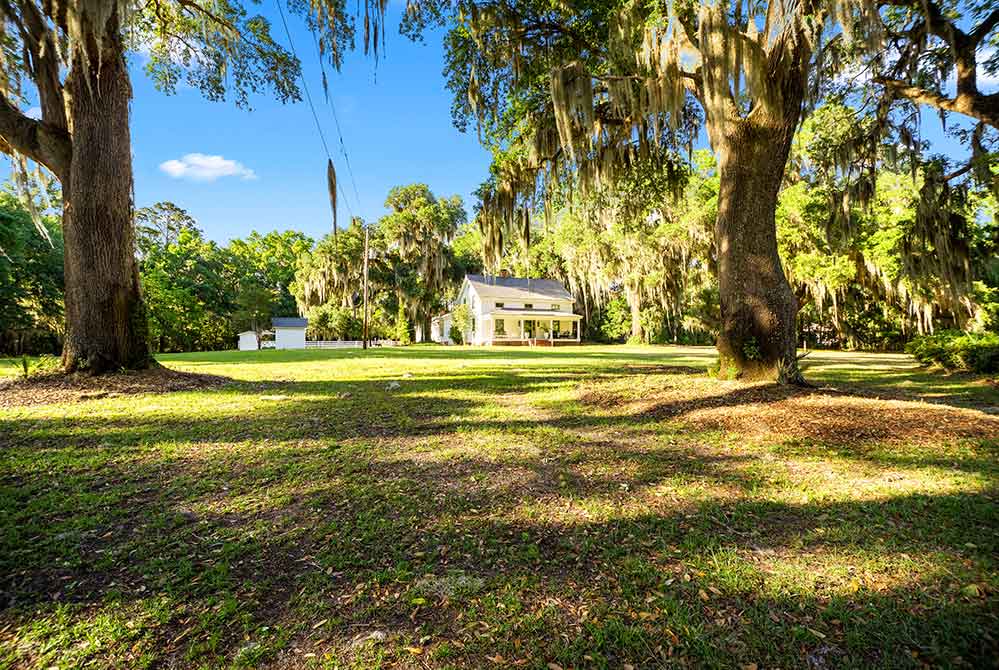
Frieda Harn’s son and daughter, Jimmy Thompson and Wanda Hanneman were there; Linda Harn, wife of Cookie Harn was there; Jimmy’s wife Glenda, Richmond Hill historian Christy Sherman, and the aforementioned Paige Glazer were there. And, of course, there was me, a newly minted southerner from the hills of Vermont. None of the Harn family kids – or Linda – had seen the inside of the old house since the renovation. Jimmy hadn’t eaten a meal there since he was just a few weeks old. But they were all clearly thrilled and honored to have been invited home. So there we were, nine strangers seated around the table. But as I waited for the conversation to turn to plaster and floorboards and paint, it went in a decidedly different direction.
“I remember this place well,” says Jimmy Thompson in his textbook southern drawl. “‘Course we all left back in 1943. My mamma got married and we moved to Savannah, but we’d come back around to these parts from time to time to check on the place. There wasn’t much out here back then. There was Carpenter’s store and a few farms, and this old house. Back then, the kitchen was out back, and just about every other room was a bedroom. My mamma was one of eleven kids you know. My uncle Bobby Harn used to say that every time Affie – she was a midwife who lived a ways back in the woods behind the house – every time Affie came to the house carrying a basket another Harn child was born. We also had a pipe-smoking housekeeper – Phyllis was her name. At one point or another, I think Phyllis must have lived with all of us.”
“Oh, I remember Phyllis!” shares Linda Harn, with a distant but soft look in her eyes. “Cookie just loved Phyllis. He wasn’t much of a talker, my husband, but he spent a whole lot of his time down in Phyllis’s room keeping her company. I reckon he just about drove her crazy. Anyway, Cookie and I went out looking for Phyllis’s grave one day. For some reason, he wanted to know where she was buried. Well let me tell you, we searched everywhere, up and down every row in the cemetery. But no luck. Finally, in the old Baptist cemetery out on the Neck, we noticed a big old pine tree that was growing out of someone’s grave. I went over to see who it was, and wouldn’t you know…it was Phyllis. But then we had to pay $500 to get that tree off of her grave. No way Cookie was gonna let a pine tree set on top of Phyllis for eternity.”
“Didn’t Massey or Maxwell live out here for a time,” asks Wanda, who’s laugh, mannerisms, and warmth make her feel like a friend you’ve known for years. “And what was the name of that crazy neighbor who moved the top half of some house all the way from Richmond Hill just to plop it out here? What ever happened to him?”
“You remember him?” Patrick asks with a laugh. “All I remember was he didn’t quite know where his property line was, and he had a hole in the ground over there that was so wet you could lose a Volkswagen in it.”
And everybody laughed. And then everybody laughed some more. And for the next 90 minutes, story after story of the old days. And then came the name dropping – Miner, Parker, Harden, Kicklighter. Families who’ve inhabited these parts since the original King’s grant. But not a single story about the molding or the beautifully bleached and sanded floors or the hand-painted wall murals or the seamlessly wallpapered kitchen ceiling. It was as if these strangers had known each other all of their lives. Each one remembering and embellishing on the stories of the others.
But it wasn’t until Wanda – who, true to Charles Kuralt’s observation that a real southern storyteller would never use two or three words when ten or more would do – shared a story about Frank Paris’s restaurant that drew laughter from everyone and brought Davenport’s quote home for me. “Southerners,” he wrote, “can claim kin with anybody. It’s one of our most dextrous talents.”
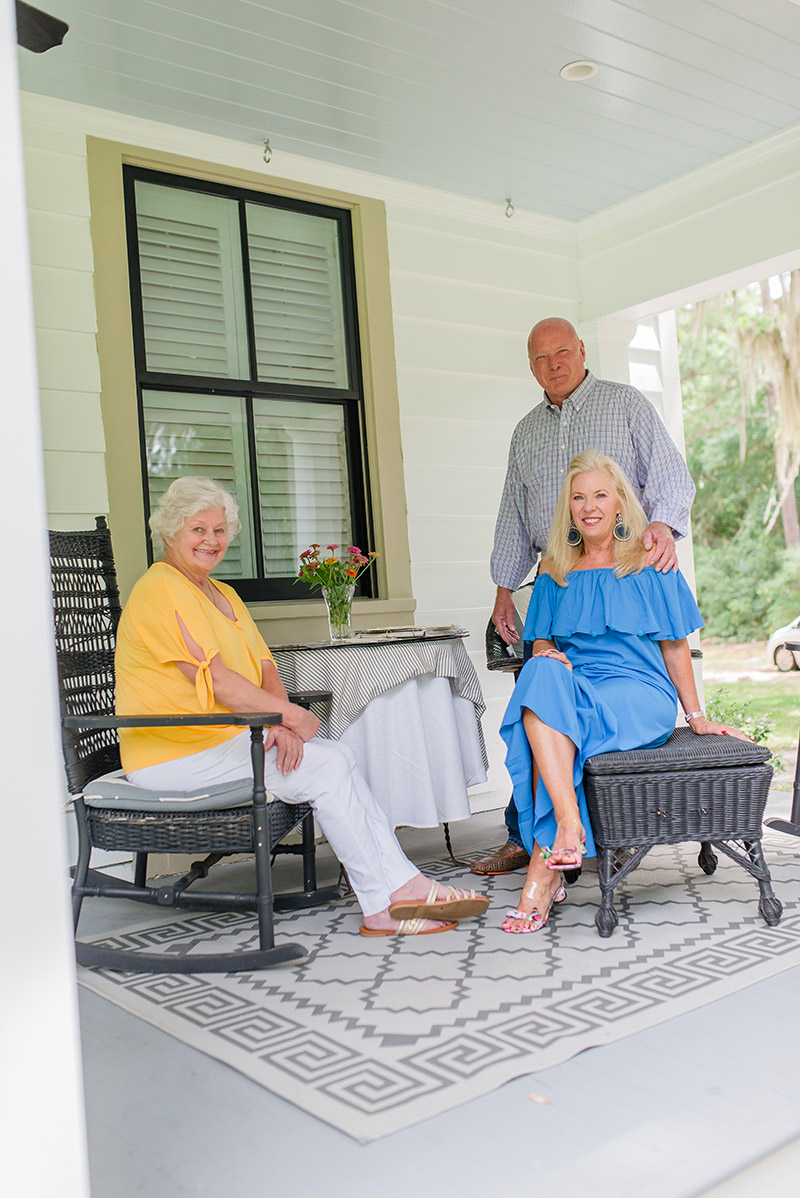
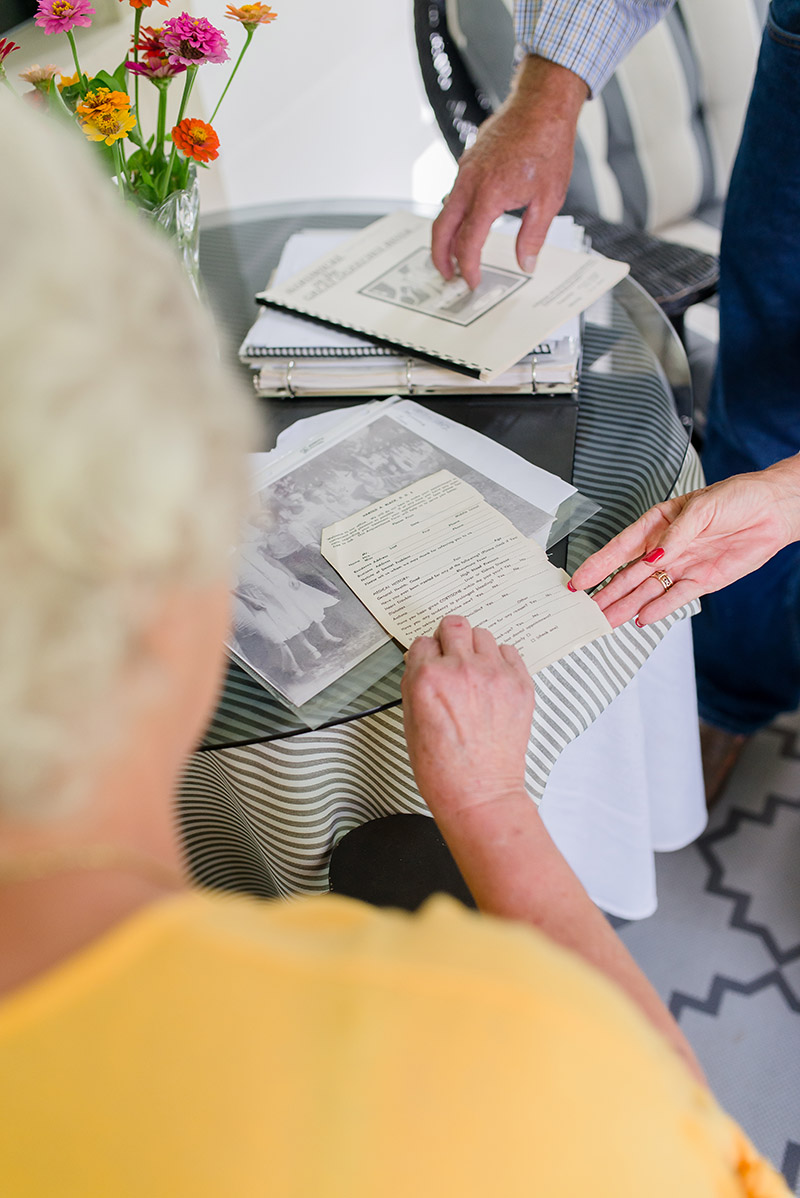
“Oh, I remember Phyllis!” shares Linda Harn, with a distant but soft look in her eyes. “Cookie just loved Phyllis. He wasn’t much of a talker, my husband, but he spent a whole lot of his time down in Phyllis’s room keeping her company. I reckon he just about drove her crazy. Anyway, Cookie and I went out looking for Phyllis’s grave one day. For some reason, he wanted to know where she was buried. Well let me tell you, we searched everywhere, up and down every row in the cemetery. But no luck. Finally, in the old Baptist cemetery out on the Neck, we noticed a big old pine tree that was growing out of someone’s grave. I went over to see who it was, and wouldn’t you know…it was Phyllis. But then we had to pay $500 to get that tree off of her grave. No way Cookie was gonna let a pine tree set on top of Phyllis for eternity.”
“Didn’t Massey or Maxwell live out here for a time,” asks Wanda, who’s laugh, mannerisms, and warmth make her feel like a friend you’ve known for years. “And what was the name of that crazy neighbor who moved the top half of some house all the way from Richmond Hill just to plop it out here? What ever happened to him?”
“You remember him?” Patrick asks with a laugh. “All I remember was he didn’t quite know where his property line was, and he had a hole in the ground over there that was so wet you could lose a Volkswagen in it.”
And everybody laughed. And then everybody laughed some more. And for the next 90 minutes, story after story of the old days. And then came the name dropping – Miner, Parker, Harden, Kicklighter. Families who’ve inhabited these parts since the original King’s grant. But not a single story about the molding or the beautifully bleached and sanded floors or the hand-painted wall murals or the seamlessly wallpapered kitchen ceiling. It was as if these strangers had known each other all of their lives. Each one remembering and embellishing on the stories of the others.
But it wasn’t until Wanda – who, true to Charles Kuralt’s observation that a real southern storyteller would never use two or three words when ten or more would do – shared a story about Frank Paris’s restaurant that drew laughter from everyone and brought Davenport’s quote home for me. “Southerners,” he wrote, “can claim kin with anybody. It’s one of our most dextrous talents.”

